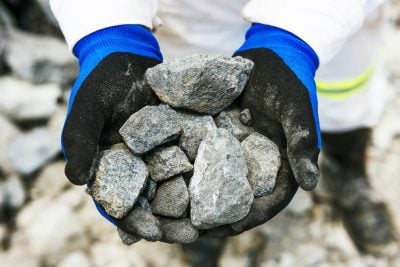Singapore, a modern urban metropolis brimming with towering skyscrapers, has metamorphosed to host some of Asia and Africa’s major food and agri-businesses, including Olam. A venture that began modestly in Africa’s agricultural markets in 1989, trading raw cashew nuts from Nigeria to India, has now expanded into a global enterprise operating in over 60 countries with revenues exceeding $50bn.
Venkataramani Srivathsan, Olam’s managing director for Africa & Middle East, maintains a hopeful vision for the company’s future. He recognises the rapid digitalisation of the sector and the strategic use of artificial intelligence (AI) as vital keys to unlocking new realms of productivity and maintaining the company’s competitive edge.
“There is a lot of catch-up going on, not only in Olam but across the world. Despite technology’s transformative impact on many industries, its application in agriculture has mainly been to refine data collection, management, and accuracy. With the intervention of AI-based agritech tools, yields are boosted and buying models can dramatically improve,” says Srivathsan.
The practicality of these AI-powered tools is far-reaching. From his office in Singapore, Srivathsan can use his smartphone to monitor farms in distant corners of Burkina Faso or Côte d’Ivoire. It’s a form of digital omnipresence that transcends geographical boundaries. These AI tools offer more than just observation; they enable Olam to assess specific farm conditions like rainfall and soil health in order to provide personalised advice to farmers based on real-time data.
Pest forecasting
“For instance, if we detect unseasonal rain, we can anticipate a potential pest infestation and alert farmers to implement appropriate preventative measures,” Srivathsan explains, highlighting the actionable insights this technology can provide.
Srivathsan underscores how these AI tools can revolutionise the field of agriculture with their game-changing impact. “With AI’s help, applying the right inputs, pesticides, or treatments at the right time can determine the success or failure of a harvest,” Srivathsan says. This innovation can lead to more reliable crop production, safeguarding the livelihoods of farmers and ensuring food security.
At the core of Olam’s AI initiative are strategic partnerships. Partnering with Toronto-based Canvass Analytics, Olam harnesses its AI platform to sift through copious amounts of data, enhancing efficiency and yields while reducing waste and improving transparency. This alliance bolsters AtSource, Olam’s digital platform, granting unprecedented traceability and sustainability in food production.
The productivity challenge
However, despite World Bank data showing that the African agricultural sector accounts for 35% of the continent’s GDP and over half of its jobs, productivity still lags behind global standards. Therein lies the potential for AI to make a significant impact. “This technology can transform not just individual farms, but also the sector on a previously unimaginable scale,” Srivathsan says.
Related articles
Want to continue reading? Subscribe today.
You've read all your free articles for this month! Subscribe now to enjoy full access to our content.
Digital Monthly
£8.00 / month
Receive full unlimited access to our articles, opinions, podcasts and more.
Digital Yearly
£70.00 / year
Our best value offer - save £26 and gain access to all of our digital content for an entire year!

 Sign in with Google
Sign in with Google 



